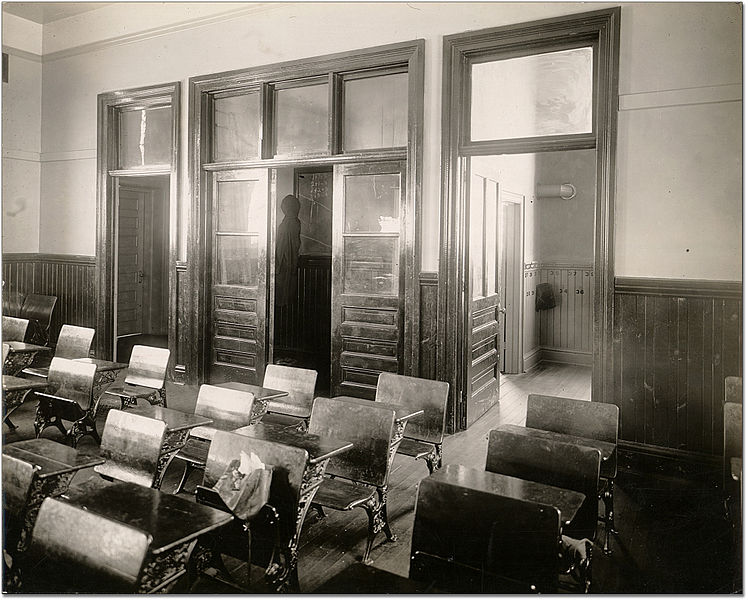Not Very Neutral on Teacher Neutrality
4 February 2013 - 6:04pm
 I often encounter pleasing, surprising, and startling learning moments in my curriculum and teaching courses and I try to turn as many of these into pedagogic opportunities for my students. I have encountered a multitude of learning moments in the five years I have been teaching undergraduate courses in social studies curriculum, and these encounters have helped me to realize that engaging teaching is really an ongoing series of such moments. While the novelty of grand-narrative-awareness, for example, has long ago passed for me, I am fascinated with how my students cope with its novelty, especially how it complicates and potentially implicates them in the story they have long taken to be fundamentally and universally true. As they come to appreciate that the rendering of the past as they know it is socially, politically, and economically positioned and contingent, some come to realize that the assumed neutral role that they supposed characterizes the place of the teacher has been compromised. This is especially relevant as we engage in deliberate work to integrate multiple perspectives into teaching.
I often encounter pleasing, surprising, and startling learning moments in my curriculum and teaching courses and I try to turn as many of these into pedagogic opportunities for my students. I have encountered a multitude of learning moments in the five years I have been teaching undergraduate courses in social studies curriculum, and these encounters have helped me to realize that engaging teaching is really an ongoing series of such moments. While the novelty of grand-narrative-awareness, for example, has long ago passed for me, I am fascinated with how my students cope with its novelty, especially how it complicates and potentially implicates them in the story they have long taken to be fundamentally and universally true. As they come to appreciate that the rendering of the past as they know it is socially, politically, and economically positioned and contingent, some come to realize that the assumed neutral role that they supposed characterizes the place of the teacher has been compromised. This is especially relevant as we engage in deliberate work to integrate multiple perspectives into teaching.
For me, though, the issues of teacher neutrality and binary constructs are, too often, unsurprising encounters I often try to turn into learning opportunities and teaching moments for my students. Teacher neutrality and naive binaries in history and social studies teaching and learning are topics that need more attention in teacher education and professional reflective practice. Together, neutrality and the right/wrong, two-sides to-every issue constructs inhabit neglected and ignored epistemological assumptions built into curriculum materials and the lived curricula of classrooms and schools. The self-perception of teacher as neutral catalyst for discussion ignores the unexamined subjectivity of the teacher who engineers learning opportunities to begin with through planning, resource choices, and means to facilitate conversations. While teachers must facilitate conversations and engage students in purposeful discussions and deliberations, teachers need to be concurrently attuned to the ways their own identities and subjectivities filter what they hear and impact what they say, especially what they ask of students. Students perceive the nuances of speech in the classroom and the utterances of teachers. They gauge the kinds of knowledge that seem welcome to the extent to which certain perspectives will be tolerated, participating and self-censoring in particular ways that might limit the trajectory of a conversation in predictable ways. Teachers need to be vigilantly attuned to such nuances because they are at work in shaping democratic discourse in the classroom and encouraging students to appreciate that perspectives matter.
The binary construct, while lending itself to clarity and certain kinds of assessment, potentially ignores some viewpoints and perspectives. Binaries are deeply embedded in our western consciousness and in our language. The right/wrong, good/bad, left/right, this-or-that rendering of knowledge and positionality inhabits classrooms, courtrooms, and parliaments. It is present in the laws that we live with and in the political rhetoric we encounter in relation to law, policy, and choice. In history education this can mean that voices from the past are ignored, for example, because the complexity these voices might bring into classroom discourse is incompatible with the limited time teachers and students can spend with any one set of outcomes. Further, complexity demands a certain fluency, comfort end even expertise with a topic. It can demand a willingness to talk about unpleasant knowledge and the political realities of the teaching context. Yet the issues we address in social studies and in history classrooms are complex, they are multifaceted, they are emotionally charged, and they are political.
Preparing teachers to engage in practices that complicate knowledge and interrupt the situated character of knowing and understanding does not happen easily for student teachers and those that teach them. Encounters with pedagogies in undergraduate courses that complicate perspective and enhance appreciation of teachers’ and students’ subjectivity are very brief in relation to the long temporal relationship that student teachers have had with binaries and the notion of the neutral teacher. Yet expanding student teacher and practicing teachers' horizons in relation to complexity and perspectivity should not be avoided because of challenges and potential resistance. I have found that once the door is opened, even a bit, to interrogating the taken-for-granted assumptions about what we know and how we know it, opportunities for innovative teaching are revealed.
How do you embrace complexity and offer space for multiple perspectives in your history lessons?
Photo:Classroom with teacher's office, Horner Avenue School, Long Branch, 1916. Copyright expired (Original image held at Archives of Ontario, RG 2-43, 4-831).

